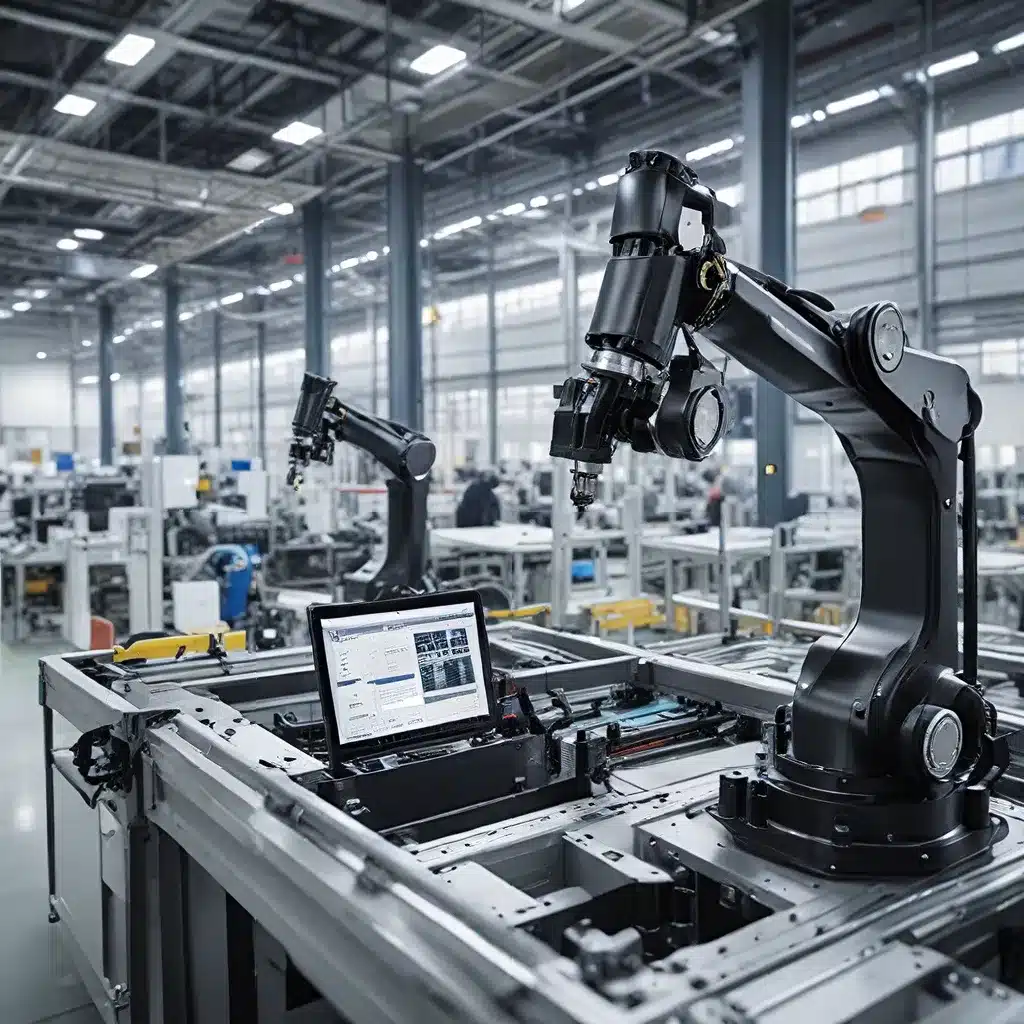
The Rise of Industry 4.0 and Smart Manufacturing
The manufacturing industry is undergoing a profound transformation, driven by the emergence of Industry 4.0 and the widespread adoption of smart factory technologies. Synonymous with the digital transformation of the field, Industry 4.0 is ushering in a new era of real-time decision-making, enhanced productivity, flexibility, and agility, revolutionizing the way companies manufacture, improve, and distribute their products.
At the heart of this transformation are sensor networks and the Internet of Things (IoT). Manufacturers are integrating these new technologies, along with cloud computing, analytics, and artificial intelligence (AI), into their production facilities and throughout their operations. Smart factories are now equipped with advanced sensors, embedded software, and robotics that collect and analyze vast amounts of data, enabling better decision-making and a new level of efficiency and responsiveness to customer demands.
Unlocking the Potential of Smart Factories
The value created by smart factories extends far beyond the factory floor. By combining data from production operations with operational data from enterprise resource planning (ERP), supply chain, customer service, and other systems, manufacturers can achieve unprecedented levels of visibility and insight into their entire operations. This convergence of information technology (IT) and operational technology (OT) is a key hallmark of Industry 4.0.
Sensor-enabled smart factories leverage this interconnectivity to drive real-time visibility of manufacturing assets, enabling predictive maintenance and minimizing equipment downtime. Furthermore, the integration of AI and machine learning algorithms allows for the detection of errors and quality issues at earlier stages, reducing costly rework and improving overall production efficiency.
Enhancing Productivity and Quality through IoT
The deployment of high-tech IoT devices in smart factories has led to higher productivity and improved quality. By replacing manual inspection processes with AI-powered visual insights, manufacturers can reduce errors and save both time and money. Cloud-connected smartphones, for example, can be used to monitor manufacturing processes remotely, empowering quality control personnel to identify and address issues promptly.
Through the application of machine learning algorithms, smart factories can detect errors immediately, rather than at later stages when the cost of repair work is significantly higher. This shift from a reactive to a proactive approach to quality control is a game-changer for the manufacturing industry, driving down costs and enhancing the overall efficiency of production processes.
Achieving Flexibility and Mass Customization
One of the key benefits of Industry 4.0 and smart factory technologies is the ability to achieve mass customization. By leveraging advanced simulation software, new materials, and 3D printing, manufacturers can now create customized goods that meet individual customer needs in a cost-effective manner, moving away from the traditional focus on mass production.
This increased flexibility allows manufacturers to better respond to changing customer demands, ultimately striving to achieve a lot size of one in an economical way. The integration of production operations with the supply chain plays a crucial role in this transformation, enabling transparency and optimization throughout the value chain.
Securing the Smart Factory
As manufacturers embrace the digital transformation of Industry 4.0, the cybersecurity of their operations has become a critical concern. The same connectivity and integration that enable the smart factory’s efficiency also expose new entry points for malicious attacks and malware.
Addressing this challenge requires a comprehensive cybersecurity approach that encompasses both IT and OT systems. Manufacturers must prioritize the security of their cyber-physical systems, ensuring that the protection of their operational equipment is as robust as the safeguarding of their traditional information technology infrastructure.
Powering the Smart Factory: Energy Management Strategies
The energy consumption and environmental impact of smart factories are also essential considerations in the Industry 4.0 landscape. Manufacturers must explore energy-efficient design strategies and sustainable power sources to minimize their carbon footprint and reduce operating costs.
Sensor networks and IoT devices play a crucial role in energy management, enabling real-time monitoring, predictive maintenance, and optimization of energy usage across the factory floor. By leveraging data analytics and machine learning, smart factories can identify opportunities for energy savings and implement sustainable practices that align with their broader environmental, social, and governance (ESG) goals.
The Road Ahead: Embracing the Future of Smart Manufacturing
As the manufacturing industry continues to evolve, the adoption of sensor-enabled smart factories will be a driving force behind the fourth industrial revolution. By harnessing the power of IoT, cloud computing, AI, and data analytics, manufacturers can unlock new levels of productivity, quality, and flexibility, ultimately delivering greater value to their customers and stakeholders.
However, the path to a truly smart factory is not without its challenges. Manufacturers must navigate the complexities of IT-OT convergence, cybersecurity, and energy management, all while ensuring the sustainability and resilience of their operations. By partnering with experts and embracing the transformative potential of these emerging technologies, manufacturers can position themselves for success in the Industry 4.0 era and beyond.
Conclusion
The sensor-enabled smart factory represents a paradigm shift in the manufacturing industry, driven by the digital transformation of the field. By integrating IoT, cloud computing, analytics, and AI, manufacturers can achieve real-time visibility, enhanced productivity, and greater flexibility to meet customer demands. As the industry continues to evolve, embracing these transformative technologies will be crucial for manufacturers seeking to future-proof their operations and maintain a competitive edge in the global marketplace.